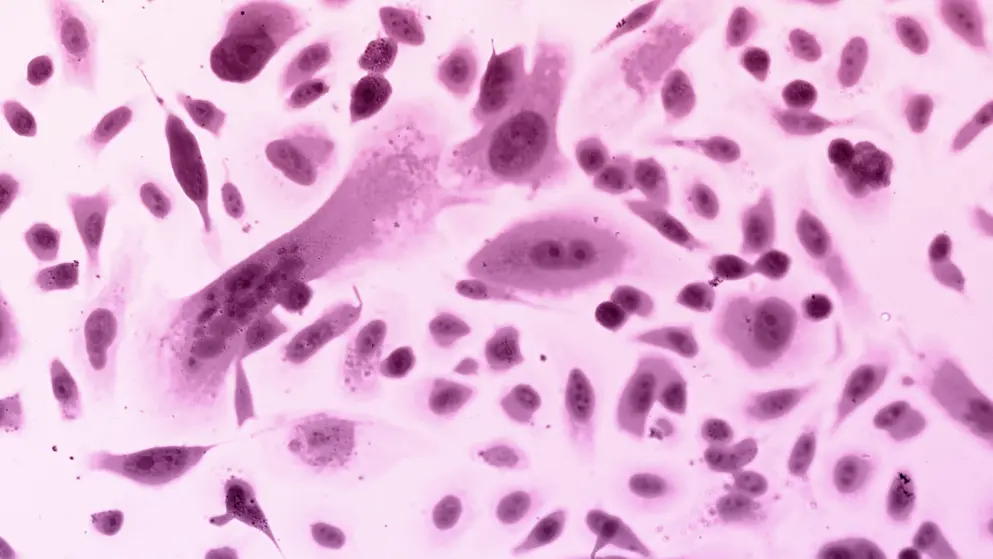
Phase III Trial Results for Prostate Cancer Therapy
Candel Therapeutics, Inc. announced results from a multicenter phase III clinical trial evaluating CAN 2409 viral immunotherapy in localized prostate cancer patients
The phase III clinical trial of CAN -2409 in intermediate-to-high-risk, localized prostate cancer met its primary endpoint, by demonstrating statistically significant improvement in disease-free survival in patients who received CAN 2409 plus prodrug (valacyclovir) combined with standard of care compared to standard of care alone.
The 2:1 randomized, double-blind, placebo-controlled, multicenter clinical trial enrolled 745 patients (intent to treat population, ITT) to evaluate the effectiveness and safety of CAN 2409 plus prodrug (valacyclovir) viral immunotherapy in combination with standard of care external beam radiation therapy to improve disease-free survival (DFS) in patients with intermediate-to-high risk, localized prostate cancer. Patients were randomized and stratified for the use of short-term (< 6 months) androgen deprivation therapy (ADT).
CAN 2409 is an investigational, off-the-shelf, replication-defective adenovirus that delivers the herpes simplex virus thymidine kinase (HSV-tk) gene to tumor cells. CAN 2409, when administered with valacyclovir, is designed to induce immunogenic cell death of tumor cells with exposure of tumor antigens in the context of an activated tumor microenvironment. Together, this regimen is designed to induce an individualized and specific CD8+ T cell-mediated response against the tumor, based on in situ vaccination against a variety of tumor antigens. Preclinical and clinical evidence suggests that CA -2409 can be synergistic with local radiotherapy, providing further support for the design of the current phase III clinical trial.
“The improvement observed in disease-free survival in this phase III clinical trial is clinically meaningful. We have not seen significant advances in this indication in decades. CAN 2409 has demonstrated the potential to significantly improve long-term outcomes without adding substantial toxicity to standard of care radiation,” said Glen Gejerman, M.D., MBA, Co-Director of Urologic Oncology at Hackensack Meridian Health, and one of the principal investigators of the study. “If approved, this approach has the potential to transform the treatment paradigm in prostate cancer, offering patients with localized disease an effective treatment option that may reduce the risk of disease recurrence.”
Phase III Trial Results in Intermediate-High Risk Disease; The study met its primary endpoint, demonstrating a statistically significant improvement in disease-free survival compared to the control arm. Key topline results include:
- i. Statistically significant improvement in DFS for CAN 2409 plus radiation therapy (n=496) vs. radiation therapy alone (n=249) (p=0.0155; HR 0.7) in the intent to treat population.
- ii. 14.5% relative improvement in DFS observed at 54 months for the CAN 2409 treatment arm compared to the placebo control arm.
- iii. DFS improvement was observed both in patients receiving short term ADT and in patients not receiving ADT.
- iv .In an analysis that focused on prostate-specific outcomes (e.g., censored mortality due to other causes), CAN 2409 showed a highly significant effect (p=0.0046; HR 0.6) on prostate cancer-free survival.
- v. Significant increase in the proportion of patients achieving a prostate-specific antigen (PSA) nadir (<0.2 ng/ml) was observed in the treatment arm compared to the placebo control arm (67.1% vs. 58.6%, respectively; p<0.0164).
- vi. CAN 2409 induced 80.4% pathological complete responses (pCRs) in the 2-year post-treatment biopsies compared to 63.6% observed in the control arm (p=0.0015).
The median follow-up time for the recruited population was 50.3 months. The primary outcome measure included the evaluation of post-treatment biopsies, performed at two years from the end of radiation, for the presence of tumor recurrence. Local or systemic recurrence and death from any cause were also part of the DFS endpoint.
The safety profile of CAN-2409 was generally consistent with previous studies, with no new safety signals identified. The most common CAN-2409-related adverse events were flu-like symptoms, fever and chills, which were generally mild to moderate in severity and self-limited.
The company also reported that the phase II clinical trial of monotherapy CAN 2409 in 190 patients with low-to-intermediate risk localized prostate cancer undergoing active surveillance showed numerical improvement in time to radical treatment and the percentage of patients achieving negative (prostate cancer-free) biopsies at 1-year post-treatment. However, these differences did not reach statistical significance. The safety profile of CAN 2409 was generally consistent with that reported in the phase III clinical trial.
“We are thrilled to report the phase III results for CAN 2409 in intermediate-to-high risk, localized prostate cancer,” said Paul Peter Tak, M.D., Ph.D., FMedSci, President and Chief Executive Officer of Candel. “This study validates previous observations of CAN 2409 activity seen in difficult-to-treat solid tumors, often resistant to immunotherapy, and confirms our previous observation of synergies with radiation therapy in models of prostate cancer. Importantly, this study was conducted under a Special Protocol Assessment (SPA) agreed with the FDA, on key aspects of study design, meaning that safety and efficacy data generated from the study could be sufficient for the Company to seek regulatory approval for CAN 2409 in this indication. We look forward to working with the FDA, as a next step, to seek approval to bring CAN 2409 to patients in the U.S., and advance our broad viral immunotherapy pipeline across other large oncology indications of high unmet need.”
Based on these results, Candel intends to initiate discussions with the FDA regarding the regulatory pathway for CAN 2409 in intermediate-to-high-risk localized prostate cancer. The Company will present the totality of the data for both studies at upcoming medical conferences.

